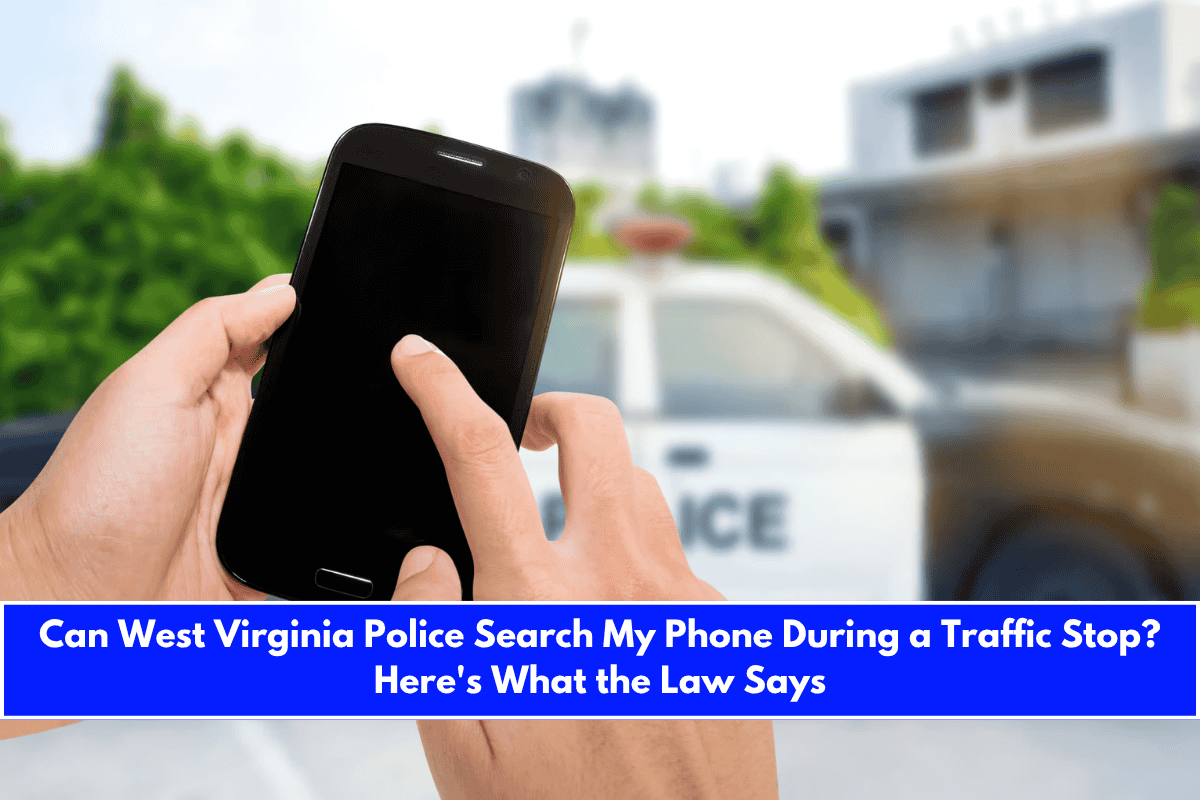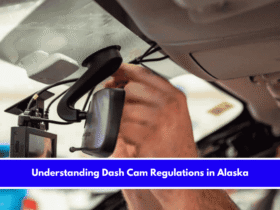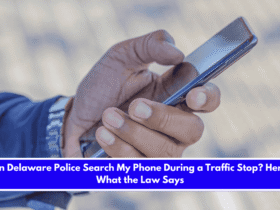No, West Virginia police cannot search your phone during a traffic stop without a warrant, your consent, or a specific legal exception. The law provides strong privacy protections for the contents of your cell phone.
Legal Basis
- Fourth Amendment Protections: The U.S. Constitution and West Virginia law protect you from “unreasonable searches and seizures.” This means police generally need a search warrant to access the contents of your phone.
- Consent Exception: If you voluntarily give police permission to search your phone, they may do so without a warrant. You are not required to consent, and you may politely decline.
- Probable Cause and Exigent Circumstances: Police may seize your phone without a warrant if they have probable cause to believe it contains evidence of a crime and there are urgent circumstances (such as imminent risk of evidence destruction). However, even in these cases, they must obtain a warrant before searching the phone’s contents.
- Plain View Doctrine: If illegal activity or evidence is visible on your phone’s screen while it is in plain view, police may seize the device. But again, searching the contents (texts, photos, etc.) still requires a warrant.
Relevant West Virginia Law
- Vehicle Searches: West Virginia law requires police to have probable cause, a warrant, or your written/oral consent to search your vehicle during a traffic stop. The same standard applies to your personal property, such as a cell phone.
- Recent Court Rulings: Courts have consistently held that the privacy interest in a cell phone is high, and a warrant is almost always required to search its contents.
What Should You Do if Asked?
- You have the right to refuse consent.
If police ask to search your phone, you may say, “I do not consent to a search of my phone.” - Do not physically resist, but clearly state your refusal.
- If your phone is seized, police must still obtain a warrant to search its contents unless a rare exception applies.
Summary Table
| Situation | Can Police Search Your Phone? | Notes |
|---|---|---|
| Routine traffic stop, no warrant, no consent | No | Protected by Fourth Amendment |
| You give verbal/written consent | Yes | Consent must be voluntary |
| Probable cause + exigent circumstances | May seize phone, but need warrant | Can hold phone, but need warrant to search contents |
| Evidence in plain view on phone screen | May seize phone, but need warrant | Still need warrant to search beyond what’s visible |
West Virginia police cannot search your phone during a traffic stop unless you consent, they have a warrant, or a rare legal exception applies. If you are asked, you have the right to refuse consent to a search of your phone.
Sources:
- https://code.wvlegislature.gov/62-1A-10/
- https://www.thewvlawfirm.com/2018/04/15/when-can-police-make-a-search-without-a-warrant/
- https://law.justia.com/cases/west-virginia/supreme-court/2020/18-0608.html
- https://www.courtswv.gov/sites/default/pubfilesmnt/2023-11/22033.pdf











Leave a Reply